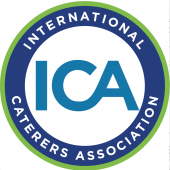Are Your 2022 Goals SMART Enough to Grow Your Catering Business?Are Your 2022 Goals SMART Enough to Grow Your Catering Business?
April 18, 2022

Despite that we’re already a few months into 2022, it’s never too late to come up with strategic goals for business growth. Especially over the past few years, your goals are something that should be ever-changing with the tides of the business world. That’s where SMART goal planning comes in. During our latest ICA Roundtable, “A Goal Without a Plan Is Just a Wish: SMART Goals Setting Deep Dive,” Lisa Ware, the Director of Sales and Business Development for Catering by Michaels, shared the importance of SMART goals for catering growth, as well as strategies for developing your own.
 We’re sharing the juiciest tidbits so you too can make your wishes into achievable goals for 2022! Ready to take some notes?
We’re sharing the juiciest tidbits so you too can make your wishes into achievable goals for 2022! Ready to take some notes?
What are SMART goals, anyway?
You may have heard of SMART goals before, but here’s a refresher about what exactly this valuable acronym stands for:
S – Specific: Be specific about what you want to accomplish.
M – Measurable: This helps you measure progress. Increasing corporate sales could be the goal; now pair that with a measure: increase corporate sales by 15%.
A – Attainable (Achievable): This part of your goal is meant to inspire motivation, not discourage action. Think about the goal and whether you have the tools/skills/budget to attain it! Also, consider if it’s achievable in today’s business climate.
R – Relevant (Realistic): Does it fit with the broader business goals?
T – Time-Bound (Timely): Anyone can set a goal, but if it lacks realistic timing, chances are you aren’t going to succeed. Will it take one month, one quarter, or one year?

This is exactly how Ware and her team start their review process, so save it, and make it into a slide for your SMART goal brainstorming session—more on that later.
Why are SMART goals important?
Over the past couple of years, goal-setting has been harder than ever with the constant changes in the world, restrictions for the events industry, and general unknowns. So, now more than ever, as we continue down the road to recovery, we need to be intentional and strategic with the plans that get us back to the booming business we know we can have.
Don’t miss the ICA during Catersource Conference & Tradeshow
Want more chats about goals and motivation from other like-minded catering professionals seeking growth? The International Caterers Association is waiting for you! Stop by the ICA Inspiration Zone during Catersource Conference & Tradeshow 2022 to join friends, peers, and colleagues.
A Harvard Business School study uncovered a measurable “why” behind goal-setting that business owners and sales directors must consider. They found that 3% of graduates from their MBA program had their goals written down. Those 3% made 10 times as much as the other 97% put together a decade after graduation. So, this goes to show that goals can spark your long-term growth tenfold—and then some. And this is just one study; there are so many more that link setting goals with higher motivation, self-esteem, self-confidence, and autonomy! This is what we all need after a challenging epoch. Don’t you agree?
Implementing SMART goals with your team
Are you ready to put your plan into action?
Ware shared that her team started small when devising SMART goals for the business. It’s better to have something to set your sights on than have too many ideas and get overwhelmed. This leads to failure.

To start, have each team member set two SMART goals that fall under two different buckets. Buckets are areas that can spark impact for your organization. Think of areas like your top business goals, values, or mission. Here are the buckets Ware shared with her team. Use these as inspiration to get started:
Annual Sales Goal
a. Percentage increase by sales type
b. Percentage increase by chosen venue
c. 1a and 1b greatly help put intention behind how your team will achieve their main sales goalRelationship Development
Dealer’s Choice (anything as long as it’s relevant to your business)
. Culture
5. Personal
Lead a session as a group with your entire management team and have individuals share, or allow them to work solo and then share with their managers afterward. Knowing what the goals are allows management to cheer employees on and motivate them!
Making them stick
Now that your team has SMART goals written down, how do you make them accountable for achieving them?
Ware suggests setting a once-monthly 30-minute session to review SMART goals together, one-on-one with the manager or as a team.
Provide each team member with a template they can fill in with actions they’ve taken as a step toward achieving their SMART goals. Use the meeting to review, analyze efficacy, troubleshoot, and brainstorm other ideas or revise if needed.
This monthly consistency and accountability will lead to major ROI and changes by year-end!




.png?width=700&auto=webp&quality=80&disable=upscale)


